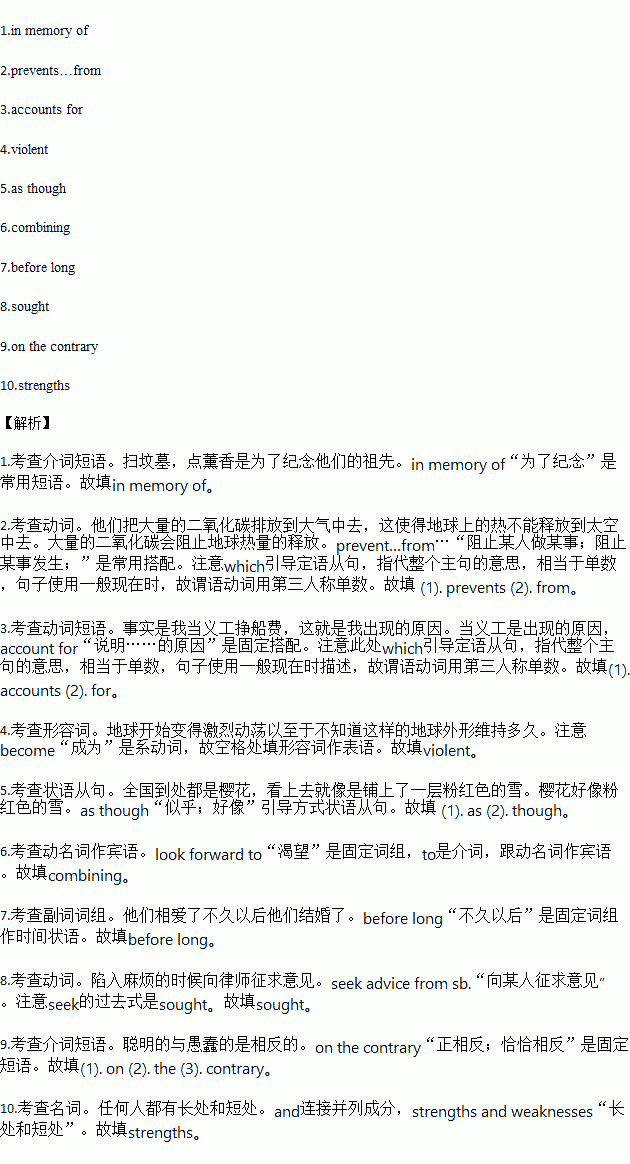题目内容
1.For the Japanese festival Obon,people should go to clean graves and light incense i______ m_________ o_____ their ancestors.
2.They are putting too much carbon dioxide into the atmosphere, which p_____ heat f____ escaping from the earth into space.
3.The fact is that I earned my passage by working as an unpaid hand, which a________ f____ my appearance.
4.The earth became so v___________ that it was not clear whether the shape would last or not.
5.The country, covered with cheery tree flowers, looks a____ t______ it is covered with pink snow.
6.I look forward to___________(结合) our ideas so that we can provide a balanced menu with food full of energy and fibre.
7.They fell in love and __________ ___________(不久以后) they got married.
8.When he was in trouble, he ____________(寻求)advice from his lawyer.
9.You think you are clever; ________ _________ _________(正相反),I think you are foolish.
10.Anyone has ___________(长处)and weaknesses.
 阅读快车系列答案
阅读快车系列答案
